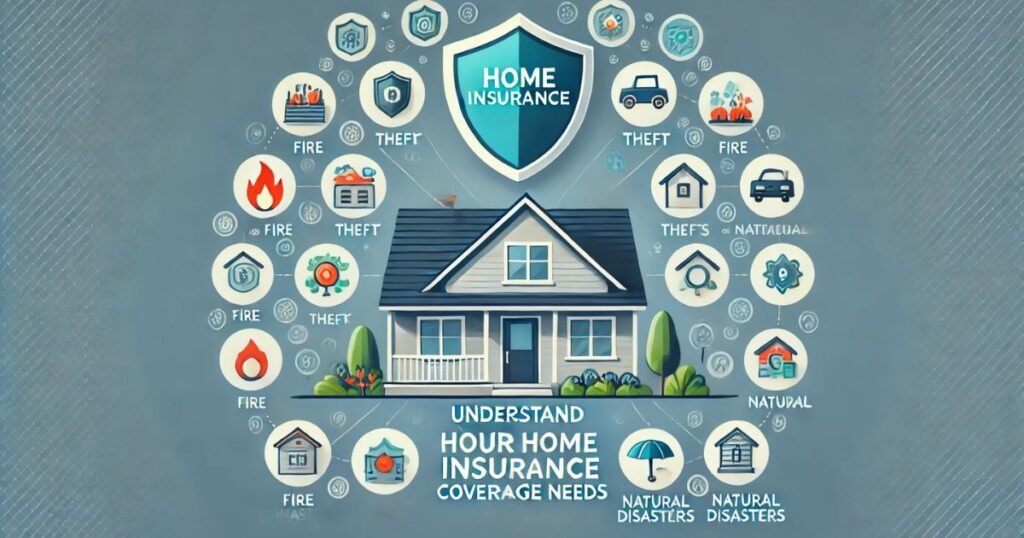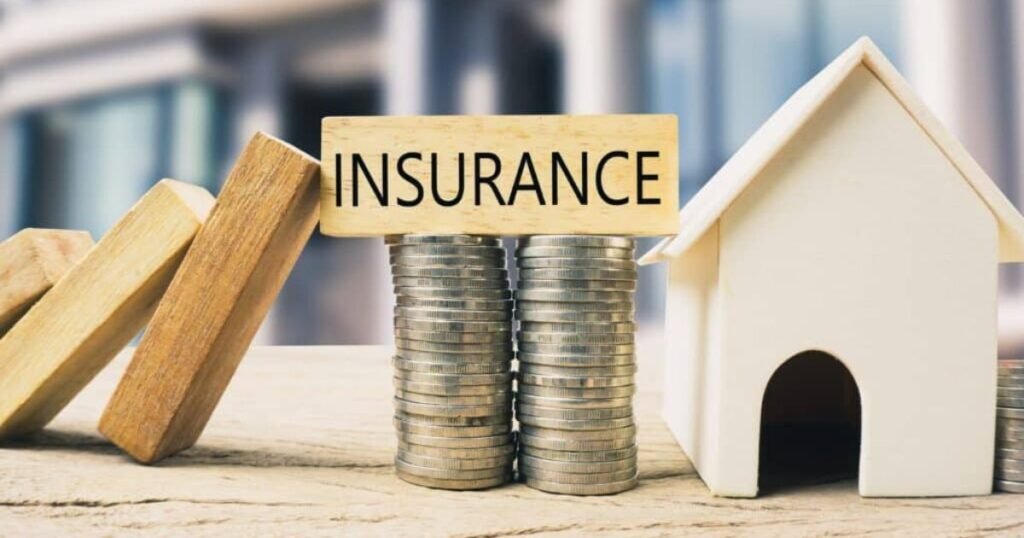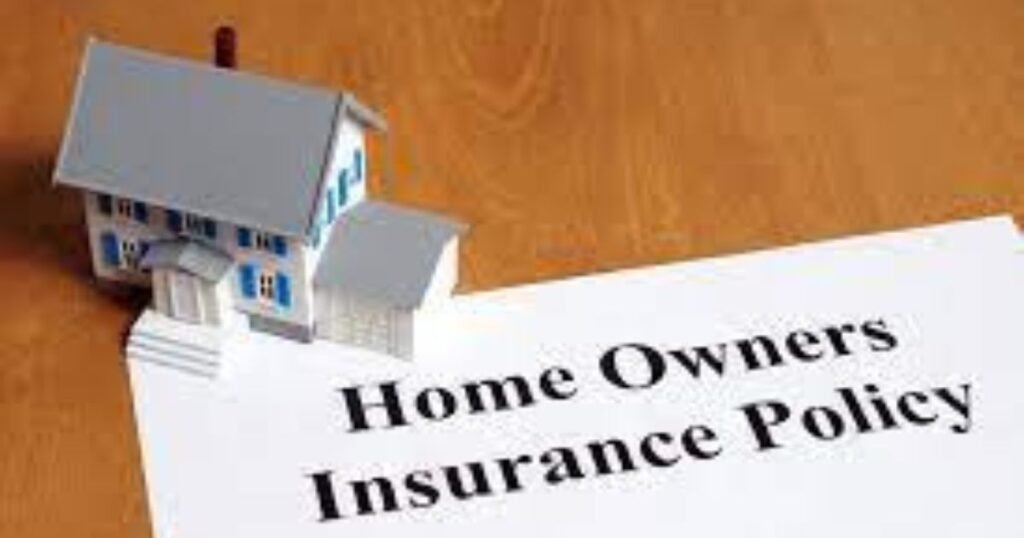
Protecting your largest investment needs home insurance. It shields your property from harm, theft, and unanticipated circumstances. But when there are many choices, users can quickly get overwhelmed. The happy news is that you do not have to pay top dollar to get the protection you want. Using the Home Insurance Tip below you can insulate your property in a way that doesn’t empty your pocket.
This tutorial will describe how to select an appropriate policy, find discounts, and prevent naïve mistakes. Regardless if you are a first-time homeowner or would like to update your current plan, this advice will help you when dealing with the considerations of home insurance.
Smart Home Insurance Tips

Protecting your home is a top priority. But in reality, it might be challenging to strike a balance between the expense and the range of topics covered. Techniques allowing its proper application, it is indeed possible to preserve a property and save both time and money. This article is filled with perceptive Home Insurance Tips that will help you make conscious decisions while controlling costs.
1. Understand Your Coverage Needs

It is advisable to carefully think over the individual needs before buying a policy. Not every home needs the same amount of protection.
Key Points:
- Analyze property value: Find out how much it would cost to replace your house, which is not only its market value.
- Your property: To obtain the right coverage, estimate the total value of your possessions.
- Liability protection: If an accident or injury occurs on your premises, liability coverage ought to be a part of your policy.
You may ensure sufficient protection without paying for needless extras by customizing your policy to meet your needs. One of the best home insurance tips for saving money is this one.
2. Shop Around for the Best Rates

Insurance premiums vary widely between providers. It is possible to obtain the policy at the price you find comfortable if you compare quotes from various companies.
Key Points:
- Request multiple quotes: Obtain quotes from various insurers using online comparison tools.
- Read reviews: To assess each vendor’s credibility, compare customer reviews.
- Bundle policies: Additionally, when bundling home insurance with auto or other types of insurance, discount eligibility can arise.
Don’t settle for the first quote you receive. We can save hundreds of dollars a year by shopping about.
3. Improve Your Home’s Security

Better security can protect your property but can also reduce your costs.
Key Points:
- Install alarms: Burglar and fire alarms reduce risk and may be subject to price reductions.
- Upgrade locks: Secure doors and windows with high-quality locks.
- Add surveillance: Cameras and security systems deter theft and increase safety.
Insurance companies, in general, will reduce the discount rate for homeowners who are beforehand in a position to act to lower the risk. These measures for securing the home are a feasible answer both for protecting and saving your home.
4. Opt for a Higher Deductible

Your deductible is the sum of money you pay over your insurance premium before your insurance kicks in. A larger deductible can result in a much lower rate.
Key Points:
- Evaluate risk tolerance: Make sure you are financially ready to bear the deductible if a claim is made.
- Compare savings: Calculate the reduction in savings realized with an increase in the deductible amount.
- Plan: Keep an emergency fund to cover potential out-of-pocket costs.
This is one of the simpler Home Insurance Tips to save on monthly costs without compromising the coverage.
5. Ask About Discounts

A given insurance provider can offer a number of discounts that will result in a lower premium. Take advantage of these opportunities to save.
Key Points:
- Loyalty discounts: Long-term customers often receive reduced rates.
- No-claim bonuses: Avoiding claims over time can result in significant savings.
- Eco-friendly upgrades: Green home renovations, like solar panels, can be potentially subsidized.
Reach out to your insurer to see what discounts are available to you, and don’t miss out on any discount opportunities.
6. Review Your Policy Annually

Your insurance needs may change over time. You can be sure you’re not paying too much for out-of-date coverage by routinely examining your insurance.
Key Points:
- Update home value: Adjust coverage based on renovations or market changes.
- Reassess belongings: Add or remove coverage for personal items as needed.
- Compare new options: Check if switching providers could offer better rates.
By remaining proactive with your policy review, you’ll be able to react to changes and take advantage of lower-cost resources.
7. Avoid Over-Insuring

While adequate insurance coverage is a must, insuring your dwelling to an overinflated degree, will lead to an unjustified expense.
Key Points:
- Know replacement costs: Ensure that your house is insured for the cost of rebuild, not its market value.
- Limit unnecessary riders: Do not extend coverage to things that you don’t own or that you don’t need.
- Focus on essentials: Ensure your policy covers major risks without excessive extras.
Home Insurance Tips include finding the right balance between adequate protection and cost.
8. Bundle Your Policies

Cobbing your homeowner’s insurance with other insurance such as automative or life insurance can be a way to save a considerable sum of money.
Key Points:
- Contact your provider: Ask about bundling options and associated discounts.
- Simplify payments: Managing multiple policies with one provider is convenient.
- Compare bundled rates: Ensure the combined cost is cheaper than separate policies.
Bundling is a simple mechanism to reduce premiums and manage insurance efficiently.
9. Maintain a Good Credit Score

When it is your credit score that is also good, however, then this influences the cost of your insurance. Lower rates may result from a higher score.
Key Points:
- Pay your bills on time: To keep your credit history good, avoid making late payments.
- Pay attention to your score: Look for mistakes or problems on your credit report regularly.
- Reduce your debt: You become more creditworthy when you reduce your debt-to-income ratio.
Financial healthy behavior is not only good for your credit report but may also lower your relative insurance premiums.
10. Consider Specialized Policies

Home insurance may not cover flood or earthquake perils. Assess whether additional policies are necessary.
Key Points:
- Identify risks: Evaluate your area’s susceptibility to natural disasters.
- Purchase riders: Describe the coverage for luxury items, e.g., jewelry or art.
- Consult an agent: Seek professional advice to ensure comprehensive protection.
Being completely covered against particular hazards is ensured by customized coverage.
Conclusion
It’s not necessary to spend a fortune protecting your property. By using these tips for home insurance, you may find the ideal balance between price and coverage. There are ways to save on your rates without sacrificing cover (from understanding your cover need through discounted navigation and maintaining a solid credit score.
Periodically check your policy and keep updated on what is available for making the best decisions about your house. Remember, the aim is to secure your property as efficiently as possible. Just do what is suggested in order to protect your investment and be happy.
FAQs
How can I lower my home insurance premium?
It is possible to lower your premium by increasing your deductible, improving your home, and taking advantage of the discounts. Periodically reviewing your policy for a more beneficial rate is also a worthwhile strategy. These Home Insurance Tips are useful for saving money, but also effective as deterrents from loss.
What factors affect home insurance costs?
The price of an intervention is affected not only by other home factors (e.g., household equities, and environmental conditions) but also by numerous home features (e.g., home location, age, and type of building materials). Security features, scores on your credit report, and the amount of coverage you choose, too, will play a role. Understanding all these factors is the foundation and starting point for optimal policy management.
Why should I insure my home at replacement cost rather than its market price?
One should insure the dwelling for replacement cost (ie, cost to replace and restore). The market value represents the totality value of the land and changes with the fluctuations in the real estate market, thus has a lower degree of credibility in the underwriting process. This is one of the very pivotal Home Insurance Tips.
Are there specific discounts for eco-friendly homes?
Yes, there are several offered discounts from different insurers for homes with green improvements, including photovoltaic panels, energy-conserving household appliances, and environmentally friendly building materials. These characteristics decrease risks and conform to the ecological insurance principle.
